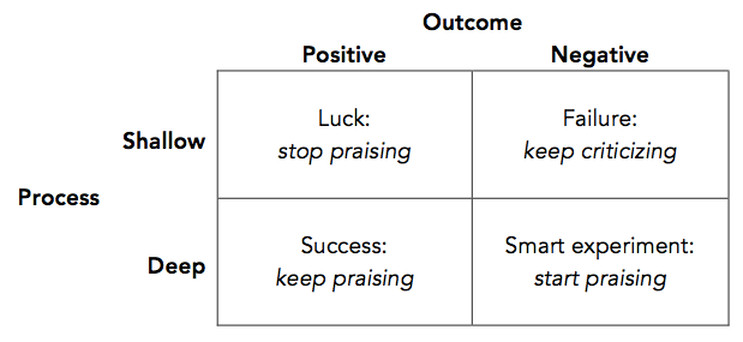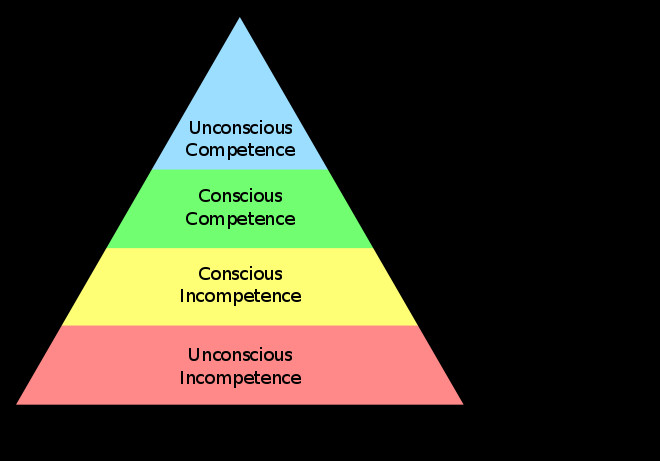Something I like to stress often to clients is the saying, "experiments never fail." So, when I saw this graphic in my colleague, Adam Grant's Linkedin feed today, I knew I had to share it.
In his article, Adam is challenging us all to stop praising luck and start praising his term for failure: smart experiment. I couldn't agree more!
Success without competence is dangerous!
When we fail, we usually learn far more than when we succeed. Failure is powerful. It gives us information and insight that allows us to fine-tune and improve our efforts. Which each experiment, we get closer to knowing how to succeed.
The opposite of this is success without knowledge - and it's very dangerous. Think about a time when you succeeded at something, but maybe never fully understood why? How confident were you that you could repeat that success? Did you end up failing when you tried again? There's a reason for that. It's because you weren't "consciously competent" in order to maintain success.
4 Stages of Confidence & How They Impact Your Success
According to Wikipedia, in psychology, the four stages of competence, or the "conscious competence" learning model, relates to the psychological states involved in the process of progressing from incompetence to competence in a skill.
Without failures, or as Adam calls them, smart experiments, you can't get to conscious competence. What does this all mean?
Reframe Your Failure & Good Things Will Happen
Any failure can be used to grow. And that's a good thing! When we give ourselves praise for experimenting, learning and growing, we can stop the negative self talk (NST) in our heads that is yelling at us for our failure. Now, we can fight back and say, "Hey, I tried and I got smarter because of it." That's the power of failure and the journey to conscious competence. In my experience, success usually isn't far behind.
Let me give you an example...
Let's say you've been trying to find a new job for 7 months (like Hillary), and had no luck. You've been completing dozens of applications online, but employers just aren't getting back to you. You start to doubt your skills and abilities. You feel like you're failing. But, what if instead you said, "Hmm. I've been experimenting with online applications and they aren't working. Perhaps, I need to experiment with a different way of looking for work."Suddenly, you switch into research mode and start looking for alternatives. You come across some new resources on Youtube that show you exactly why employers aren't calling you for job interviews. All of a sudden, you've gone from consciously incompetent (a/k/a feeling like a failure), to putting yourself on the fast-track to a new job. You've turned failure into something good!
P.S. - The victory is always sweeter when you fail first.
The best part about reframing your failure and using it to help you experiment, learn and grow is how elated you feel when you finally succeed. That's because you get to take all the credit! You are the hero in your own success. YOU DID IT! That feeling of euphoria can be quite addictive. Hopefully, leading you to want to experiment some more. Failure goes from something you dread and try to avoid, to something you now expect and can use to your advantage. And that's when you really know you're on your way to catapulting your career!
Originally published on Linkedin Pulse
.CEO is the Domain and Platform for Business Leaders - Try it free for 30 days-

About J.T. O'Donnell
#1 Way Reframing Failure Can Catapult Your Career
#1 Way Reframing Failure Can Catapult Your Career
More Answers

